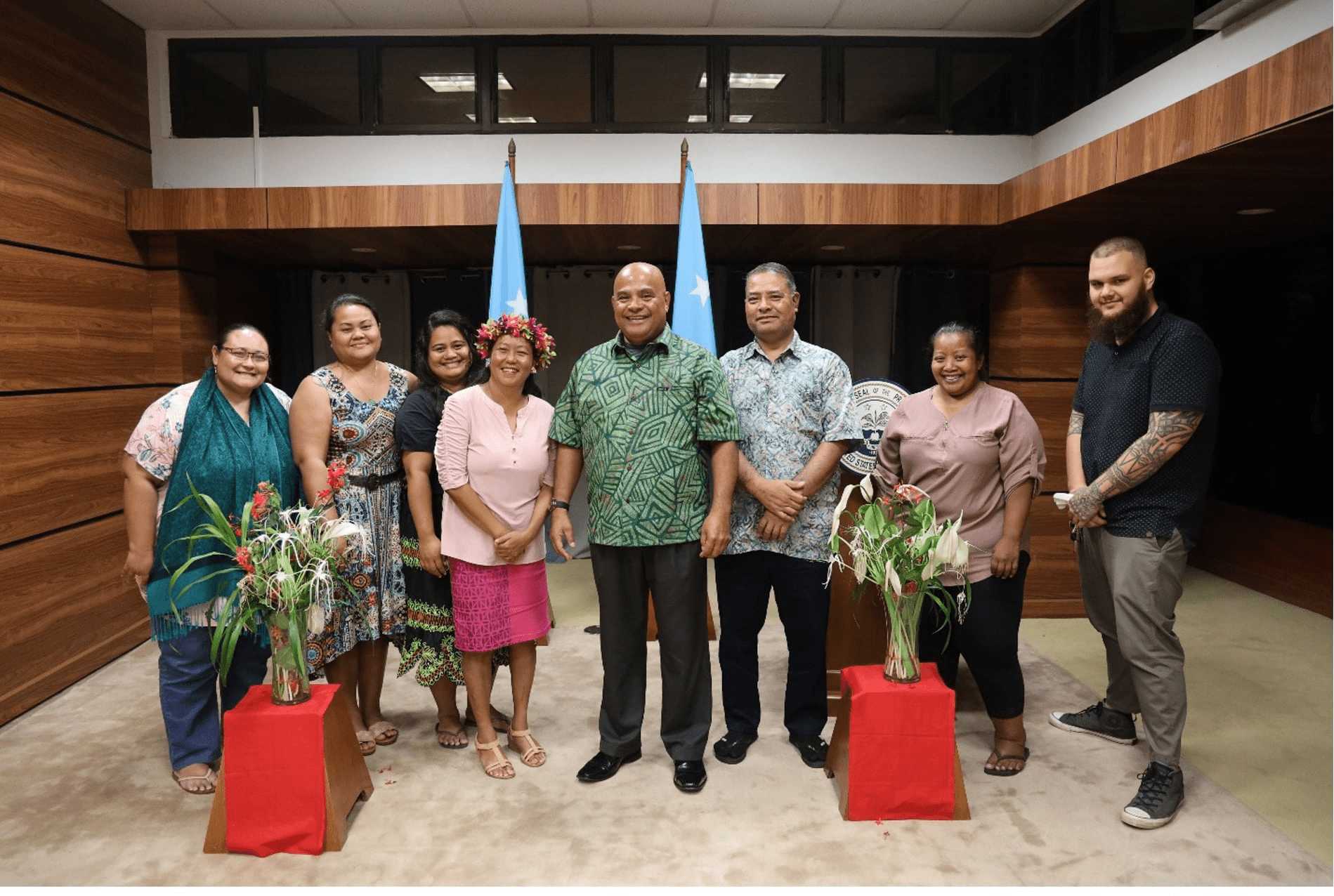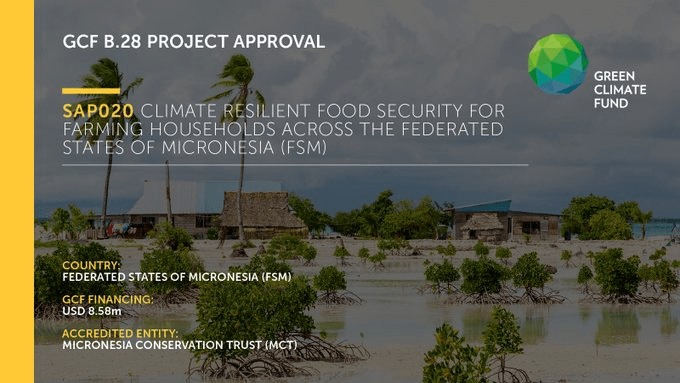
This year, Earth Day is focused on “Restore Our Earth” through climate action. At DT Global, we’re strongly committed to building resilience to climate change. To celebrate the day, we’re focusing on the work of our USAID Ready project as it supports countries’ ability to access climate finance and develop policies and capacity to address climate change impacts.
As one of the most vulnerable island countries in the Pacific region, the Federated States of Micronesia is facing accelerated sea-level rise and extreme weather events. These events—widely attributed to climate change—can have severe impacts on the agricultural sector and food security due to crop loss, erosion, damaged infrastructure, polluted drinking water, price, and supply shocks. These impacts to subsistence livelihoods have led to forced migration. Moreover, the COVID-19 pandemic has reduced food imports and increased reliance on already stressed domestic value chains. Although Micronesia has taken steps to address these challenges, including creating a National Disaster Response Plan as well as disaster risk management plans in each of the four states of Micronesia, challenges remain in the implementation of the system-wide solutions to address climate risks on local agricultural production.
With support from the USAID Ready project, implemented by DT Global, Micronesia achieved a significant milestone recently by securing US$8.5 million from the Green Climate Fund (GCF) and an additional US$820,000 in co-financing for its first national project to reduce food insecurity related to climate change. The GCF is the largest multilateral funding mechanism to provide financial resources for climate change adaptation and mitigation projects in developing countries. USAID Ready has also assisted the Pacific Community, the Fiji Development Bank, the Micronesian Conservation Trusts, and the Republic of the Marshall Islands to become accredited with the GCF, thereby enabling them to gain direct access to GCF funding.
The GCF project, known as “Climate Resilient Food Security for Farming Households,” will benefit the country’s most vulnerable communities, including 68,250 people whose livelihoods depend on farming. To assist Micronesia in preparing the project proposal, the USAID Ready project collaborated with the Micronesia Conservation Trust, a Micronesia-accredited entity responsible for the execution and management of GCF project funds, to facilitate stakeholder consultations and provide technical assistance. Key partners who participated in the proposal’s preparation included the Secretary of the Department of Finance and Administration as the National Designated Authority, Department of Resources and Development, Department of Environment, and the College of Micronesia as well as civil society organizations, including farmers’ groups.
Employing a ‘whole of system’ approach, the GCF project will address key regional, national, and local climate threats to agricultural production. Using climate-smart interventions and green investment, Micronesia will stimulate its local economy while building more resilient communities. The project will work in a number of areas to establish an enabling environment for adaptive action and investment by strengthening the evidence base for adaptation, mainstream climate risk into development planning, and disseminate actionable climate information to community and state decision-makers. It will also enhance the food security of vulnerable households by introducing climate-smart agriculture practices and strengthening climate-resilient value-chains and market linkages across the agriculture sector.

“The Climate Resilient Food Security for Farming Households across the Micronesia project will be the first system-wide project of its kind in Micronesia,” said His Excellency, the Federated States of Micronesia’s President David W. Panuelo. “It is country-owned and will remain country-driven, as national organizations will be the implementing and executing entities.”
DT Global’s ongoing work to strengthen Micronesia's ability to access larger amounts of climate finance quickly is critical to building resilience and achieving the Nationally Determined Contribution goals under the Paris Agreement on climate change, as well as Sustainable Development Goal 13 on climate action. These investments will create more resilient markets, address risks arising from climate change, promote socio-economic benefits to vulnerable populations, and minimize environmental and social harm.
USAID Ready project, implemented by DT Global, collaborates with government partners and other key stakeholders across the Pacific region to help draft and implement adaptation policies, facilitate access to climate finance from international adaptation funds, and improve adaptation project management skills and systems. To date, USAID Ready has worked with Pacific Islands countries to mobilize approximately $US200 million from various international funds.